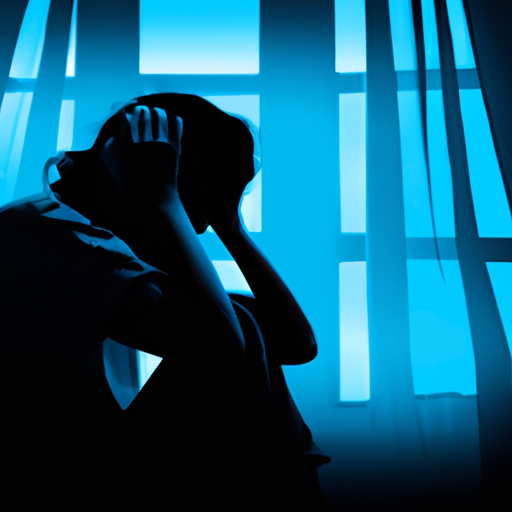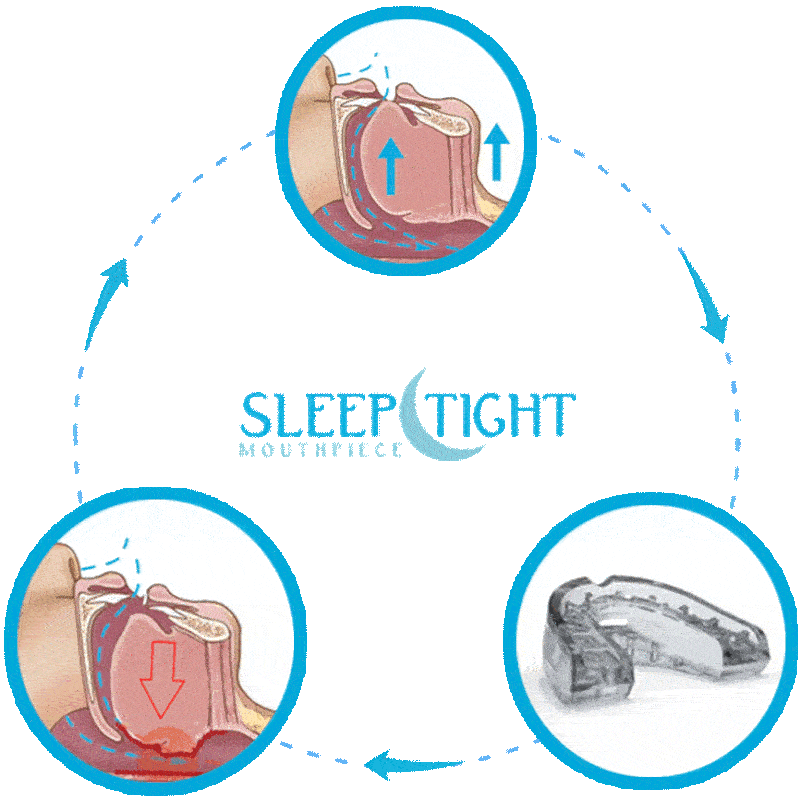Have you ever found yourself lying awake in bed, unable to fall asleep no matter how tired you are? It’s a frustrating feeling, isn’t it? Well, you’re not alone. Millions of people around the world struggle with insomnia, a sleep disorder that makes it difficult to fall asleep or stay asleep throughout the night. But have you ever wondered what causes insomnia? In this article, we’ll explore the different factors that can contribute to this sleepless condition and help you understand how it can affect your overall well-being.
Insomnia can be caused by a variety of reasons, both physical and psychological. One common physical cause is an underlying medical condition, such as chronic pain, respiratory problems, or hormonal imbalances. These conditions can make it uncomfortable or even impossible for you to find a comfortable sleeping position, which in turn, disrupts your sleep. On the other hand, psychological factors like stress, anxiety, or depression can also play a significant role in causing insomnia. When your mind is preoccupied with worry or racing thoughts, it becomes challenging to relax and drift off into a deep slumber. In the next article, we’ll delve deeper into the specific causes of insomnia and explore possible solutions to help you get a good night’s sleep. So stay tuned – you’ll be on your way to understanding insomnia better in no time!

Understanding Insomnia
Insomnia is a common sleep disorder that can affect individuals of all ages and backgrounds. It is characterized by difficulty falling asleep, staying asleep, or experiencing restful and rejuvenating sleep. The causes of insomnia vary, ranging from psychological and lifestyle factors to medical conditions and environmental influences. In this article, we will explore the different factors that can contribute to insomnia and how they can disrupt your sleep.
Definition of Insomnia
Insomnia is a condition that is characterized by the persistent difficulty in falling asleep, staying asleep, or achieving restful sleep despite having adequate opportunity for it. It can manifest in various ways, such as difficulty falling asleep at the beginning of the night, waking up frequently throughout the night, or waking up too early in the morning and not being able to fall back asleep. Insomnia can result in daytime fatigue, impaired cognitive performance, mood disturbances, and a decreased overall quality of life.
Types of Insomnia
Insomnia can be categorized into two main types: acute and chronic. Acute insomnia is typically short-term and occurs in response to a specific event or situation, such as a stressful life event or jet lag. It usually resolves on its own once the triggering factor is resolved. On the other hand, chronic insomnia lasts for a prolonged period, usually persisting for more than three months. It is often related to underlying medical or psychological conditions and requires proper diagnosis and treatment.
Psychological Factors
Stress and Anxiety
One of the most common causes of insomnia is stress and anxiety. When you are feeling overwhelmed, worried, or anxious, your mind can become hyperactive, making it difficult to relax and fall asleep. The racing thoughts and excessive worry can keep you awake at night, leading to insomnia. Additionally, the physiological response to stress, such as increased heart rate and elevated cortisol levels, can further disrupt the natural sleep-wake cycle.
Depression and Mental Health
Depression and other mental health disorders can also contribute to insomnia. Individuals suffering from depression often experience disturbances in their sleep patterns, such as difficulty falling asleep, early morning awakening, or increased sleep fragmentation. The altered neurotransmitter levels in the brain associated with depression can disrupt the normal sleep architecture and result in insomnia. Furthermore, certain medications used to treat mental health conditions may have stimulating effects and interfere with sleep.
Lifestyle Factors
Caffeine and Stimulant Consumption
Consuming caffeine and other stimulants, such as nicotine, close to bedtime can significantly impact your ability to fall asleep. These substances can increase alertness, elevate heart rate, and interfere with the natural sleep-wake cycle. It is recommended to avoid consuming caffeine and stimulants at least four to six hours before bedtime to minimize their effects on sleep.
Irregular Sleep Schedule
Having an inconsistent sleep schedule, such as going to bed and waking up at different times each day, can disrupt your body’s internal clock and make it difficult to fall asleep at night. Your body thrives on a regular sleep-wake routine, so it is important to establish a consistent bedtime and wake-up time, even on weekends or days off.
Poor Sleep Environment
Your sleep environment plays a crucial role in promoting a restful night’s sleep. Factors such as excessive noise, uncomfortable temperature, and inadequate lighting can disrupt your sleep. Creating a comfortable and calming sleep environment by reducing noise pollution, maintaining a cool temperature, and ensuring proper lighting conditions can help you achieve better sleep.
Excessive Screen Time
Spending excessive time on electronic devices, such as smartphones, tablets, or computers, before bedtime can negatively affect your sleep. The blue light emitted by these devices can suppress the production of the sleep hormone melatonin and interfere with your natural sleep-wake cycle. It is recommended to limit screen time at least one to two hours before bedtime and opt for relaxing activities instead.
Lack of Physical Activity
Leading a sedentary lifestyle and not engaging in regular physical activity can contribute to insomnia. Physical exercise has been shown to improve sleep quality, reduce sleep latency (the time it takes to fall asleep), and increase total sleep time. Incorporating moderate-intensity exercise into your daily routine, preferably earlier in the day, can promote better sleep.

Medical Conditions
Chronic Pain and Physical Conditions
Chronic pain conditions, such as arthritis, fibromyalgia, or back pain, can make it difficult to find a comfortable position and can disrupt your sleep. The discomfort and pain experienced can lead to difficulties falling asleep or staying asleep throughout the night. Additionally, other physical conditions, such as gastrointestinal disorders or respiratory conditions like asthma, can also contribute to insomnia.
Hormonal Imbalances
Hormonal imbalances, particularly in women, can affect sleep patterns. Fluctuations in estrogen and progesterone levels during the menstrual cycle, pregnancy, or menopause can lead to sleep disturbances. Symptoms such as hot flashes, night sweats, and mood swings can disrupt sleep and contribute to insomnia.
Respiratory Disorders
Respiratory disorders, such as sleep apnea and chronic obstructive pulmonary disease (COPD), can significantly impact sleep quality. Sleep apnea, characterized by recurrent pauses in breathing during sleep, can cause frequent awakenings and daytime sleepiness. COPD, a chronic lung disease, can also interfere with breathing patterns during sleep and lead to sleep disruptions.
Neurological Disorders
Certain neurological conditions, such as restless leg syndrome (RLS) and Parkinson’s disease, can cause insomnia. RLS is characterized by uncomfortable sensations in the legs, which are relieved by movement. These uncomfortable sensations can make it difficult to fall asleep or stay asleep at night. Parkinson’s disease can also be associated with sleep disorders, including insomnia, due to disturbances in the dopamine system.
Medications and Substances
Prescription Medications
Certain prescription medications, such as antidepressants, corticosteroids, and medications for treating high blood pressure, can interfere with sleep and contribute to insomnia. It is important to discuss any sleep disturbances with your healthcare provider if you are taking medications that may affect sleep.
Over-the-Counter Medications
Some over-the-counter medications, such as decongestants and pain relievers that contain caffeine or other stimulants, can disrupt sleep. It is essential to read the labels and be aware of the potential side effects these medications may have on your sleep.
Substance Abuse
Substance abuse, including alcohol, nicotine, and recreational drugs, can have a significant impact on sleep. While alcohol may initially make you feel drowsy, it can disrupt your sleep patterns and lead to fragmented and poor-quality sleep. Nicotine, from tobacco products, is a stimulant that can interfere with falling asleep. Recreational drugs can also alter the sleep-wake cycle and negatively affect sleep quality.
Circadian Rhythm Disruptions
Shift Work
Working night shifts or rotating shifts can disrupt your body’s natural circadian rhythm, which regulates your sleep-wake cycle. The constantly changing work schedule can make it challenging to establish a consistent sleep routine, leading to difficulties falling asleep and staying asleep during the day.
Jet Lag
Jet lag occurs when you travel across multiple time zones, and your body’s internal clock is not synchronized with the local time at your destination. This desynchronization can result in difficulties falling asleep and adjusting to the new sleep schedule.
Time Zone Changes
Adjusting to time zone changes, such as during daylight saving time transitions or long-distance travel, can temporarily disrupt your sleep patterns. The shift in daylight exposure and changes in the external environment can impact your sleep quality.
Seasonal Changes
Seasonal changes, particularly during the transition from winter to spring and summer, can affect your sleep. The increased daylight and longer hours of sunlight can disrupt your natural sleep-wake cycle and lead to difficulties falling asleep.
Environmental Factors
Noise Pollution
Excessive noise can disturb your sleep and make it difficult to stay asleep throughout the night. Noise pollution, such as traffic noise, loud neighbors, or construction noise, can disrupt your sleep environment. Using earplugs, white noise machines, or soundproofing your bedroom can help minimize the impact of noise on your sleep.
Temperature and Humidity
Extreme temperatures and humidity can interfere with your sleep. An excessively hot or cold bedroom can make it uncomfortable to fall asleep or stay asleep. Maintaining a comfortable temperature and using appropriate bedding can optimize your sleep environment.
Lighting Conditions
Bright lights, such as streetlights or electronic devices emitting light, can affect melatonin production and disrupt your sleep. Creating a dark and dim environment in your bedroom, using blackout curtains or eye masks, can help promote better sleep quality.
Age and Gender
Insomnia in the Elderly
As we age, our sleep patterns naturally change, and insomnia becomes more common. Older adults may experience difficulties falling asleep, staying asleep, or waking up too early. Factors such as underlying health conditions, medication use, and lifestyle changes can contribute to insomnia in the elderly.
Insomnia in Women (Hormonal Changes)
Women are more prone to experiencing insomnia due to hormonal changes that occur during the menstrual cycle, pregnancy, and menopause. Fluctuations in hormone levels, particularly estrogen and progesterone, can disrupt sleep patterns and contribute to insomnia. Symptoms such as hot flashes, night sweats, and mood disturbances can further impact sleep quality.
Genetic Predisposition
Family History of Insomnia
There is evidence to suggest a genetic component to insomnia. Individuals with a family history of insomnia are more likely to experience sleep disturbances and insomnia themselves. Certain genetic variations may alter the sleep regulatory mechanisms, making individuals more vulnerable to developing insomnia.
Hereditary Sleep Disorders
In some cases, insomnia may be associated with hereditary sleep disorders, such as narcolepsy or restless leg syndrome (RLS). These sleep disorders can disrupt the normal sleep patterns and contribute to the development of insomnia.
Conclusion
Insomnia is a complex sleep disorder that can have various causes and contributing factors. Understanding the underlying factors that can lead to insomnia is essential in addressing and managing the condition effectively. It is important to acknowledge the interplay of psychological, lifestyle, medical, and environmental factors in disrupting sleep. If you are experiencing persistent insomnia, it is advisable to seek professional help and consult with a healthcare provider or sleep specialist. They can provide an accurate diagnosis, identify the root causes of your insomnia, and guide you in developing healthy sleep habits. Prioritizing sleep and adopting a comprehensive approach to address the underlying factors contributing to insomnia can significantly improve your sleep quality and overall well-being.



